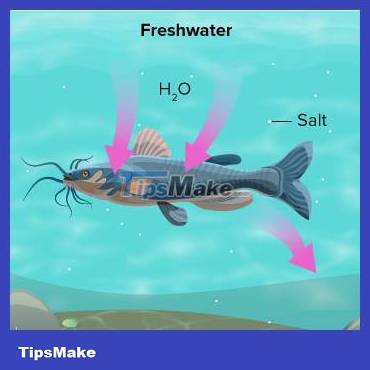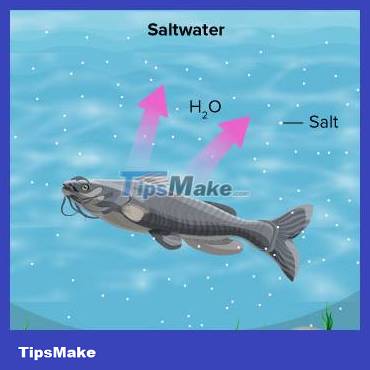Are fish thirsty?
A simple question, but often no one learns more, is that fish live in water all their lives, but are they thirsty, or do they drink water. The answer will depend on many factors.
Fish
We humans need water to survive and maintain balance in the body, mainly the balance between salt and water.
Fish that live in freshwater don't drink much water, at least not in the way that we humans do. They don't drink much water through their mouths, if they do, they run the risk of too much thinning of the blood and an imbalance between salt and water in the body.

Freshwater fish have a higher concentration of salts in their blood and body tissues than in the water around them. They absorb a small amount of water into the body through the skin and gills and then excrete the excess through urine. The process of allowing water to enter their bodies in this way is called transmembrane osmosis.
What is transmembrane osmosis?
Membrane osmosis is the process by which molecules move from a solution of high concentration to an area of low concentration. These molecules move through the semi-permeable membrane spontaneously (i.e. the process is voluntary and does not require additional energy supply) to equalize the concentration of the solution on both sides of the membrane.

This means that water will move through the fish's skin (semi-permeable membrane) to dilute the salt in the fish's body and create a more salt and water balance between the fish's body and the aquatic environment they live in.
Saltwater fish
When fish live in salt water, everything is reversed compared to freshwater. The salt concentration in the water in which they live is higher than the salt concentration in their bodies. Therefore, osmosis will cause water to move from the fish's body to the water around them. This puts them at constant risk of dehydration, and this seems to contradict the fact that they live in water.

To compensate for this, they have to actively drink water through their mouths. They process water and then produce small amounts of salt-containing urine as well as secrete salt through specialized cells in their gills.
If they drink water, will they be thirsty?

The answer is still no, because they live in water, they probably don't see it as a conscious response to seek water and drink. Thirst is usually the desired need to drink water, and saltwater fish usually do not respond to such a need.
What about salmon?

Some fish can live in both freshwater and saltwater, for example salmon, they move from freshwater to saltwater and vice versa, at different stages of their life cycle. Their bodies switch from one process to another in response to changes in salt concentration. As salmon move from freshwater to saltwater, they begin to drink more water and reduce urine output. Specialized cells in their gills pump salt out of the body. All of these changes take place over a few days, often when the fish are in waters above the tide. When salmon return to freshwater near the end of their life cycle, these changes reverse.
You should read it
- ★ Good fish oil, Uses and How to drink
- ★ 10 species of land predatory fish in the natural world
- ★ Strangely, fish can live on land for five years without dying
- ★ Why do dead fish face up on their stomachs floating on the water?
- ★ Watch the 'circus' aquarium dance with your eyes jumping over the water